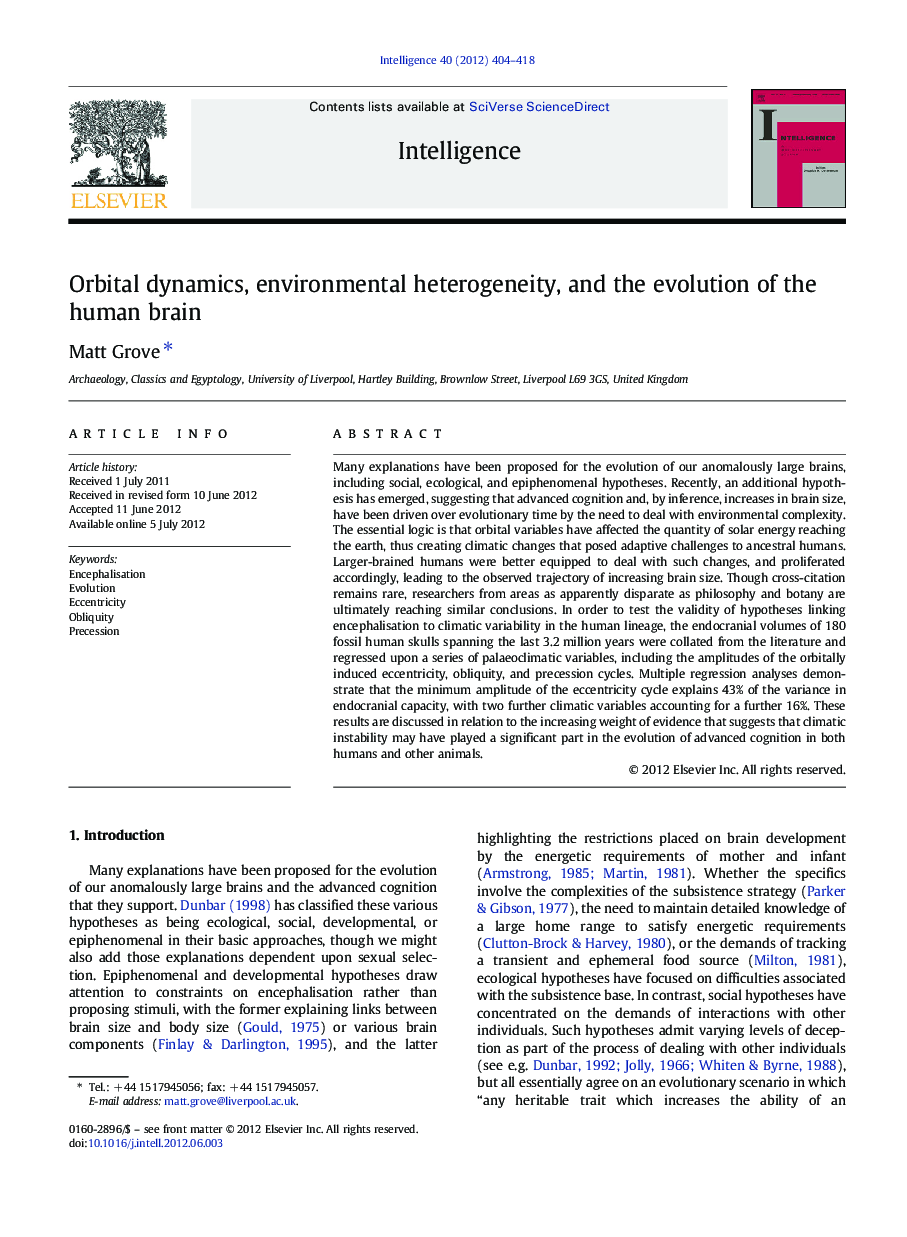| کد مقاله | کد نشریه | سال انتشار | مقاله انگلیسی | نسخه تمام متن |
|---|---|---|---|---|
| 929120 | 922541 | 2012 | 15 صفحه PDF | دانلود رایگان |

Many explanations have been proposed for the evolution of our anomalously large brains, including social, ecological, and epiphenomenal hypotheses. Recently, an additional hypothesis has emerged, suggesting that advanced cognition and, by inference, increases in brain size, have been driven over evolutionary time by the need to deal with environmental complexity. The essential logic is that orbital variables have affected the quantity of solar energy reaching the earth, thus creating climatic changes that posed adaptive challenges to ancestral humans. Larger-brained humans were better equipped to deal with such changes, and proliferated accordingly, leading to the observed trajectory of increasing brain size. Though cross-citation remains rare, researchers from areas as apparently disparate as philosophy and botany are ultimately reaching similar conclusions. In order to test the validity of hypotheses linking encephalisation to climatic variability in the human lineage, the endocranial volumes of 180 fossil human skulls spanning the last 3.2 million years were collated from the literature and regressed upon a series of palaeoclimatic variables, including the amplitudes of the orbitally induced eccentricity, obliquity, and precession cycles. Multiple regression analyses demonstrate that the minimum amplitude of the eccentricity cycle explains 43% of the variance in endocranial capacity, with two further climatic variables accounting for a further 16%. These results are discussed in relation to the increasing weight of evidence that suggests that climatic instability may have played a significant part in the evolution of advanced cognition in both humans and other animals.
► Long-term changes in solar energy have affected the earth's climate.
► This led to challenging conditions for ancestral humans.
► Bigger-brained humans were better able to deal with such challenges.
► Hence the observed encephalisation trajectory
► Results of multiple regressions support this hypothesis.
Journal: Intelligence - Volume 40, Issue 5, September–October 2012, Pages 404–418